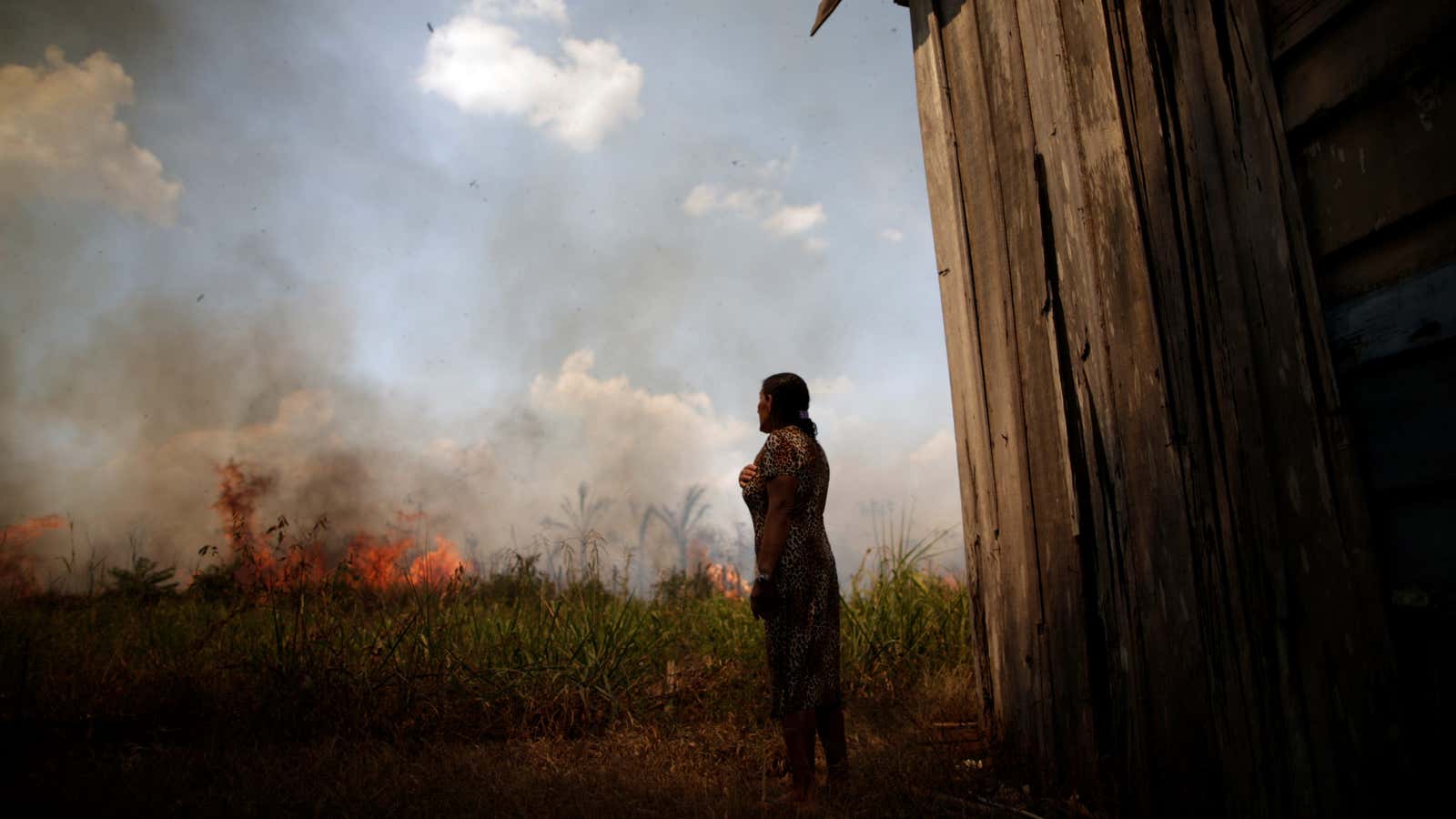As the Paris climate agreement hits its five-year anniversary on Dec. 12, a number of governments including the EU, the UK, Colombia, Canada, and Jamaica have recently rolled out new, more ambitious climate plans. This week they were joined by Brazil—but the country’s plan is drawing fire from environmentalists and reviving thorny, unresolved problems from the Paris negotiations.
Brazil ranks fourteenth among countries for greenhouse gas emissions, producing less than 5% of the carbon footprint of the US. But as the principal steward of the Amazon rainforest, it has a critical role in protecting one of the world’s greatest natural carbon sinks. And under president Jair Bolsonaro, who has worked to weaken environmental regulations, deforestation has surged to a record high.
That means the world is holding Brazil’s climate commitments to a high standard—and so far, they haven’t passed muster. The country’s new climate target, announced on Dec. 8, is essentially the same as one the country proposed in 2015: a 43% reduction in emissions below 2005 levels by 2030 and net neutrality by 2060. That’s bad enough on its own, since the Paris agreement is predicated on the notion that countries will escalate their ambitions over time. “The announced [climate plan] is insufficient and immoral,” the Brazilian NGO Climate Observatory said in a statement. “The world has changed, but Brazil’s goals have not.”
But to make things more complicated, the plan now includes an additional caveat: Meeting that goal will only be possible if the country receives $10 billion per year, continuing indefinitely, from richer countries to pay for the necessary carbon mitigation measures.
In theory, the request is reasonable. Economists and ethicists have long argued that richer countries, whose historical emissions are the main cause of climate change, have a financial obligation to poorer ones. And indeed, the Paris agreement includes language stipulating that “developed country Parties shall provide financial resources to assist developing country Parties with respect to both mitigation and adaptation.” It also set a nonbinding fundraising target of $100 billion annually for this purpose by 2020.
The problem is, the Paris agreement is vague and noncommittal about who will pay how much to whom, when. Under president Donald Trump, the US squelched on $2 billion in climate funding commitments, and countries like Russia and Australia used that as cover to dodge their own obligations. Overall, climate funding raised by developed countries reached just $78.9 billion in 2018, according to a UN report released Dec. 11, and is expected to fall short of the $100 billion target for this year—especially because the pandemic left even the richest economies with little to spare.
“Everything has to be done to support anything that will help us reach the 1.5 degree C warming goal,” Amina Mohammed, the UN deputy secretary-general, said in an interview with Quartz. “Brazil will certainly need some help along those lines, but leveraging resources for many adaptation asks is quite difficult.”
Without outside funding, Brazil can make a credible case that it can’t meet the aggressive carbon cuts necessary to stop the worst impacts of global warming. Yet, the country hasn’t proved that it would be able to use the funding appropriately: “The country has to look inward and see what it’s doing to help,” Mohammed said.
Carolina Genin, climate director for the World Resources Institute in Brazil, said that Brazil needs to demonstrate more transparency about its climate plans if it wants everyone else to pick up the bill.
“First we need a robust plan on how we are going to invest such funding and hold ourselves accountable for measurable results,” she said. “A weak climate target is exactly the opposite of what was needed.”
